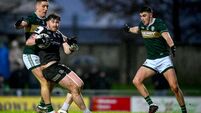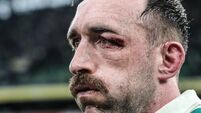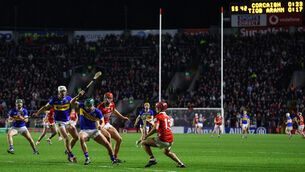Sun, 07 Feb, 2016 - 00:00
1 Front five must survive early scrutiny
Already a subscriber? Sign in
You have reached your article limit.
Subscribe to access all of the Irish Examiner.
Annual €130 €80
Best value
Monthly €12€6 / month
Introductory offers for new customers. Annual billed once for first year. Renews at €130. Monthly initial discount (first 3 months) billed monthly, then €12 a month. Ts&Cs apply.
More in this section
CourtsSports ColumnistsVideoSix Nations 2016Place: DublinPlace: southern hemispherePerson: Donal LenihanPerson: Warren GatlandPerson: Mike RossPerson: Cian HealyPerson: Iain HendersonPerson: Paul O’ConnellPerson: GatlandPerson: Thomas FrancisPerson: Samson LeePerson: Jack McGrathPerson: Nathan WhitePerson: Rob EvansPerson: Jerome GarcesPerson: GarcesPerson: HealyPerson: RossPerson: MoorePerson: James CroninPerson: O’ConnellPerson: Alun Wyn-JonesPerson: Luke CharterisPerson: Joe SchmidtPerson: Sean O’BrienPerson: CJ StanderPerson: Leigh HalfpennyPerson: Liam WilliamsPerson: Gareth AnscombeEvent: Six NationsEvent: World CupOrganisation: IrelandOrganisation: WalesOrganisation: Racing 92Organisation: WelshOrganisation: AustraliaOrganisation: Wallabies













